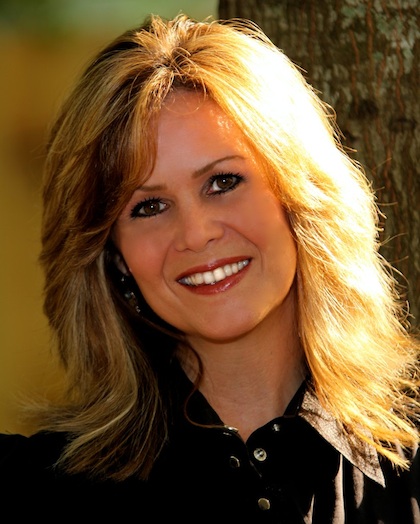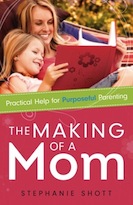10 Ways to Help Your Kids Cultivate a Missional Mindset
Stephanie Shott encourages moms with mentoring that is intentional and missional. In this Parenting UPGRADE, she offers suggestions to create missional thinking in our children.
“When my children were young, I desperately wanted them to embrace God’s call on their lives to be world changers.” Stephanie writes. “Maybe you’ve felt the same way too.”
Don’t think this is only for your children. I (Dawn) want to encourage a missional mindset in my grandchildren. And maybe you are in a position to mentor or teach children. This is valuable for you too.
Stephanie continues...
Raising children to live beyond themselves isn’t easy when so much of what they see and hear  beckons them to make their lives all about themselves.
beckons them to make their lives all about themselves.
God’s Word says, “Don’t look out only for your own interests, but take an interest in others, too” … “And don’t forget to do good and to share with those in need. These are the sacrifices that please God” (Philippians 2:4; Hebrews 13:16, NLT).
So, while we know God’s Word calls us to a life that is focused on ministering to others, it is definitely easier said than done when it comes to teaching that to our children.
I want to share with you 10 ways you can help your children cultivate a missional mindset.
- Have your children help you prepare and take food to a family in need.
- Make one Saturday a month, Saturday Serve Day and look for a way to bless someone in your neighborhood. (mow the lawn, clean the house or hang out and chat with a shut-in from church, a single mom, or someone who is ill)
- Let your children help you choose a local ministry to partner with for a weekly, monthly, or quarterly service project. (A homeless shelter, a children’s home, a nursing home, a hospital, etc...)
- Create ways your children can earn money to purchase gifts for a missionary child who is living on the field and allow your children to help pick those gifts out.
- Help them write cards of encouragement to their friends, to children in local hospitals, to widows or widowers, to missionaries, to a child you support through Compassion International or some other global ministry.
- Teach your children of Jesus’ sacrificial love by taking them shopping for those who are unable to give anything in return.
- Take them on an international mission trip where they can participate in feeding, clothing, and ministering to others in another country.
- Make it a fun game to do “intentional” acts of kindness throughout each day. Allow them to help pick out someone to bless by buying their meal, giving them a small gift, or some small way to share the love of Jesus in a tangible way.
- Help your children create a service project in your neighborhood, church, or in conjunction with another ministry. (i.e... organize a coat round-up for a homeless shelter, collect food, furniture, or money for a family in need, etc...)
- Be a missional momma. Living on mission is more caught than taught. The joy that comes with giving is contagious. When you are mission-minded, your children will more likely be mission minded too.
When we model a missional mindset and create opportunities that will help them discover the joy of giving and ministering to others, they will never be the same.
How do YOU model a missional mindset to your children, grandchildren or the children in your church?
 Stephanie Shott is the founder of The M.O.M. Initiative, a ministry devoted to
Stephanie Shott is the founder of The M.O.M. Initiative, a ministry devoted to  making mentoring intentionally missional. She is an author and popular speaker who helps women live full, fearless and faithful lives. To invite Stephanie to speak at your next event, visit her website. Find out more about The M.O.M. Initiative or how to begin a M.O.M. Mentor Group at www.themominitiative.com.
making mentoring intentionally missional. She is an author and popular speaker who helps women live full, fearless and faithful lives. To invite Stephanie to speak at your next event, visit her website. Find out more about The M.O.M. Initiative or how to begin a M.O.M. Mentor Group at www.themominitiative.com.
Graphic in text adapted: Image courtesy of stockimages / FreeDigitalPhotos.net
 1 Comment → Posted on
1 Comment → Posted on  Tuesday, July 8, 2014 at 8:00AM
Tuesday, July 8, 2014 at 8:00AM  Missional Mindset,
Missional Mindset,  Missional-Minded Children,
Missional-Minded Children,  Parenting,
Parenting,  Stephanie Shott,
Stephanie Shott,  Upgrade with Dawn Upgrade Your Life
Upgrade with Dawn Upgrade Your Life  Ministry,
Ministry,  Parenting
Parenting 













